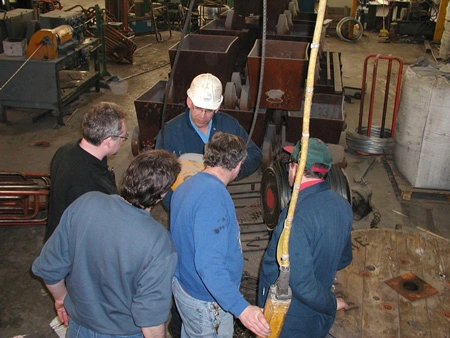
We’ve all heard the phrase “don’t sweat the small stuff.” No one wants to stress about unnecessary details. However, when it comes to safety and construction, sweating the small stuff might just be what keeps you safe.
“An important piece of advice for attendees of the seventh annual Word Demolition Summit, Oct. 14, at the Marriott Biscayne Bay in Miami, was, “Please do sweat the small stuff.” That advice came from Mike Casbon, technical director, ERM, Indianapolis, whose take on the popular coffee table book, Don’t sweat the small stuff …and its all small stuff was that in demolition the opposite is true.
“Please do sweat the small stuff. The small things really do make a huge difference,” he emphasized.
He said the industry needs to work together so no one gets hurt or killed on a job site. He noted that it had been a tough year for many in the industry as two people Cabson said were friends dies on the job. “No one should go to work and die,” he said.
He asked what drives safety performance. “Are we lucky or are we good?” he asked. He told attendees that he has been on countless jobs where close calls happened.
“In our safety programs if we rely on luck, we don’t control luck so eventually luck runs out,” he said. “Eventually catastrophic or terrible [happens]. We have to focus on being good. How do you get good at something? It is the little things that everybody does.”
Casbon showed a short video of two construction workers experiencing a close call. The scaffolding falls out from under them and they are left pretty much hanging by a thread.
He said contractors have to look at everything at a job site and they can’t be satisfied with what they have. “We have to keep moving forward,” he said, adding, “I don’t think we should be flexible. Changes shouldn’t be impossible, but they should be difficult.
He also alluded to the fatal four accidents in the construction industry (fall, struck by, caught between and electrical). They make up 75 percent of all accidents. “Just think what we could do with help in those four areas,” Casbon said.
Another bit of advice Casbon gave was, “Never allow yourself to be bored.” He pointed out how after a while on the job sites, sirens and caution signs tend to blend into the background.
“To be successful you have to keep evaluating, you have to be better,” Casbon added.
While the popular book say to ignore negativity, Casbon advises, “Don’t ignore your negative thoughts.”
“I see hazards and it scares me,” he continued. “Hazards don’t care what your position is. they strike all the time. They take any opportunity to strike.”
One of the worst accident Casbon said he ever saw happened on a Friday afternoon when everyone was cleaning up.
“Never get comfortable with not knowing,” Casbon told attendees. For example, contractors should know what is in dust and what are workers getting exposed to including polychlorinated biphenyl (PCBs) in paint and caulk, lead arsenic and cadmium, which all pose health risks.
He cited Occupational Safety and Health Administration (OSHA) statistics of 3 million nonfatal injuries occurring at the work place per year. He broke that number down to 15,000 workers per day who went to work and went home with illness or injury. Another 4,670 per year died or 23.4 workers per day.
That amounts to $250 billion per year in occupational illness and injury.
“Don’t relax,” Casbon told attendees. “Is it the light at the end of the tunnel or is it a train coming?”
In safety, 99 percent not good enough, he noted. “You are never done, it doesn’t stop.”
He also emphasized the importance of “not minding your own business.” He asked attendees how many times they had walked by something they knew was wrong. “Every time you let something go we are taking a huge risk.”
Safety starts with education, and paying attention to all the little details. You can find training at the following links:
